Manufacturing sector props up South Korean economy
The Korean Institute of Industrial Trade and Economics announced the related news on May 5, 2021: South Korea ranks third in the CIP index out of 152 countries, behind Germany and China. The 2018 Competitive Industrial Performance (CIP) Index was released by the United Nations Industrial Development Organization (UNIDO) in July last year. Out of 28 major nations, South Korea ranked second in manufacturing, the institute added. The decline in South Korea’s economic growth last year was only 40 percent of the G7 average. Unemployment went up by only 15 percent compared to the G7 nations.
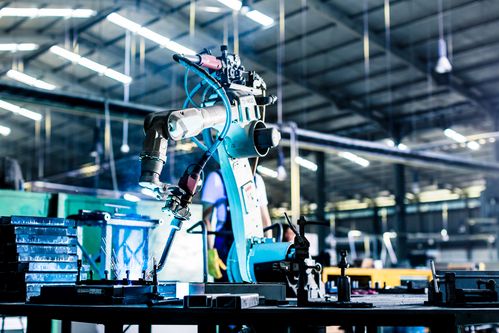
According to the institute, the South Korean economy did relatively well as exports from the domestic manufacturing industry went up. The Covid 19 pandemic had only a negative impact on local demand for manufactured goods, according to the institute’s evaluations. South Korean companies in semiconductors, displays and petrochemicals are market leaders in their segments and contribute the most to the country’s exports. Many of the manufacturers are well connected in international markets and have corresponding sales opportunities. However, the institute advises that the export market situation should be closely monitored, as there have been recent shifts in buyers due to the trade dispute between China and the United States.
In other news, the OECD recently upgraded its forecast for this year’s South Korean economic growth from 3.3 to 3.8 percent. High foreign demand for IT products, which account for 20 percent of exports, was highlighted here, as well as an increase in the popularity of cars made in South Korea. The Bank of Korea is even more optimistic in its forecast and even sees economic growth of 4.0 percent this year. If this target is achieved, it would be the highest growth rate since 2010.
To import or sell in South Korea, industrial products are subject to KC certification (also known as KC Mark). The KC mark or KC certificate is roughly equivalent to the European CE mark and applies to 730 different products. KC certification, or Korea Certification, is primarily about identifying and containing a potential risk to consumer health and safety. We will be pleased to provide you with non-binding advice regarding Korea Certification and would be happy to carry it out for you.
If you need assistance or have any questions regarding Korean certifications like KC, KC EMC, KCs or KCs for explosion safety products, feel free to contact us any time.
Tel.: +49-69-2713769259
Email: info@korea-certification.com
Urgent questions?
Please do not hesitate to contact us via chat. You will find the chat window at the bottom right of each page (if this is not visible, please check your browser settings).
For more information you can download our free brochure “Korea Certification Made Easy – The Booklet“.
New car sales in Korea up 17 percent year-on-year in January
New car sales in South Korea rose by double digits in January due to extended tax benefits and new models with environmentally friendly engines. The growth is a source of optimism for the Asian country’s auto industry, with many manufacturers hoping for an early recovery after the end of the Covid 19 pandemic. According to the Korean Association of Automobile Manufacturers, a total of 116,550 vehicles were sold in South Korea in January, up 16.6 percent from the same month last year and just as the novel coronavirus was becoming a global pandemic. Current sales are mainly composed of eco-friendly vehicles and SUVs.

Sales of eco-cars increased by more than 82 percent year-on-year as manufacturers launched several new models. Among them were the new hybrid versions of the Hyundai Grandeur, Hyundai Tucson and Kia Sorento. More than 10 percent of all vehicles sold in January were eco-cars. Sales of hybrid-powered vehicles were up 94 percent while electric cars were down 62 percent. This is attributed to an as yet unapproved Korean government subsidy for electric vehicles. Cars with fuel cells gained 75.3 percent, led by the Hyundai Nexo with 140 vehicles sold. All automakers except Renault Samsung Motors Co. reported dramatic increases in domestic sales.
South Korea’s largest automaker, Hyundai Motor Co. reported a 25 percent increase in its sales figures. This was largely contributed by their popular SUV models such as Tucson, Santa Fe and Palisade, as well as the Grandeur and Genesis sedans. Kia Corporation recorded a 12 percent increase due to the rising popularity of its Carnival and Sorento models. Improved production conditions following an agreement with the relevant union in December 2020 also contributed to the better sales figures. Exports of new vehicles are also well on the way to recovery. Exports of new cars from Korea rose 29.5 percent in January from a year earlier. Turnover rose 40.2 percent due to increasing demand for high-end vehicles from South Korea.
Are you interested in the Korean automotive market? Before your products can be launched on the market there, they must undergo certification. MPR International GmbH will be pleased to advise you regarding Korea certification in the automotive sector. We have already successfully assisted many large automotive suppliers and vehicle manufacturers with locations in Korea with their certification projects and have been supporting these companies for several years. Our experts are pleased to answer your questions regarding a pending Korea certification by phone or e-mail.
If you need assistance or have any questions regarding Korean certifications like KC, KC EMC, KCs or KCs for explosion safety products, feel free to contact us any time.
Tel.: +49-69-2713769259
Email: info@korea-certification.com
Urgent questions?
Please do not hesitate to contact us via chat. You will find the chat window at the bottom right of each page (if this is not visible, please check your browser settings).
For more information you can download our free brochure “Korea Certification Made Easy – The Booklet“.
South Korea’s shipbuilders remain global leaders
Consulting firm Clarkson Research reported in early March that orders for 92 new ships were placed globally in the previous month. Of these, South Korean shipbuilders secured 43 orders. These include orders for seven large oil tankers and five A-max tankers. For large container ships with more than 12,000 standard containers (TEU), South Korean companies won 13 of 17 tenders. Chinese and Japanese shipbuilders follow in second and third place on the world market.
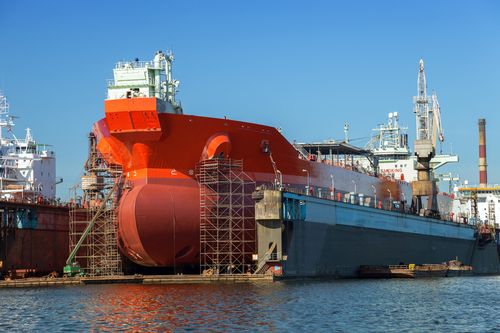
The gap in market share between South Korea and China increased by 16 percent to 56 percent in February, while China gained only one percentage point from 39 to 40. In compensated gross tonnage (CGT), South Korean companies gained 2.5 million CGT in the first two months of the year while China and Japan remained unchanged at 1.9 million CGT and 0.32 million CGT, respectively.
In the same period, Korea Shipbuilding & Offshore Engineering won orders for 46 vessels worth US$3.7 billion. This already represents a quarter of the company’s target for this year. Samsung Heavy Industries received orders for 31 vessels worth US$2.4 billion, securing as much as 31 percent of its target for the year. Daewoo Shipbuilding & Marine Engineering was awarded orders for 6 new vessels worth US$600 million, reaching 8 percent of its 2021 target.
Current backlog of open orders worldwide increased by 780,000 CGT to 71.06 million CGT in February. Broken down into the top 3, China accounted for 25.7 million CGT, South Korea 22.47 and Japan 7.97 million CGT. The Clarkson Newbuilding Price Index increased by one index point to 128 points in February. This was the third consecutive month that the indicator rose.
South Korea is considered one of the most important and innovative industrialized nations in the world. In order to gain market access to this highly technological country, products imported into South Korea must be tested and certified. The KC mark or KC certificate is roughly equivalent to the European CE mark and applies to 730 different products. MPR International GmbH has solid experience in Korea certification and competent local partners.
If you need assistance or have any questions regarding Korean certifications like KC, KC EMC, KCs or KCs for explosion safety products, feel free to contact us any time.
Tel.: +49-69-2713769259
Email: info@korea-certification.com
Urgent questions?
Please do not hesitate to contact us via chat. You will find the chat window at the bottom right of each page (if this is not visible, please check your browser settings).
For more information you can download our free brochure “Korea Certification Made Easy – The Booklet“.
Korea’s display manufacturers anticipate higher demand of OLED displays
Due to the auto industry’s shift to electric and self-driving vehicles, OLED displays are also increasingly being installed in models. Korea’s two largest display manufacturers, LG Display Co. and Samsung Display Co. could benefit from this. The value of global vehicle OLED production will expand from $49.72 million last year to $263.5 million in 2022. It is expected to reach as high as US$671.7 million by 2026. That’s according to an estimate by market watchers Omdia.
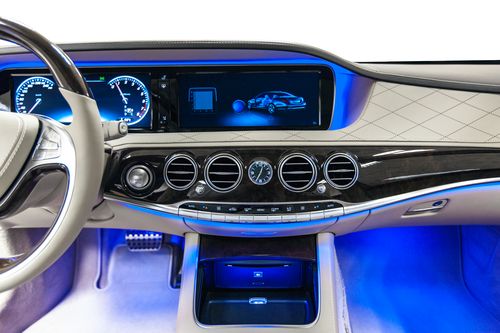
Screens in vehicles have recently become an important equipment feature, and although LCD displays continue to be predominantly used, demand from high-resolution large OLEDs has been on the rise. Premium manufacturers in particular are using OLED screens in their luxury vehicles to differentiate themselves from their competitors. LG Display has been producing so-called plastic P-OLEDs for use in vehicles since 2019, and the company’s market share is 92.5 percent in terms of total sales of the OLED automotive supplier market last year. In a distant second place is Samsung Display with only 6.9 percent. According to a company spokesperson, LG has a technology lead in this area and is now expanding its OLED offerings for the automotive industry.
Mercedes-Benz, among others, is one of LG’s customers and was already eagerly awaiting the market maturity of large OLED screens. The German automaker is unveiling the seventh generation of its S-Class sedan with LG screen technology this year, and the new EQS electric vehicle also has LG’s P-OLED display installed. Cadillac’s latest version of the Escalade SUV is equipped with an infotainment system that uses an LG 38-inch P-OLED display. Back in 2016, EV giant Tesla announced the introduction of LG OLED screens in its vehicles. To import or sell electronics in South Korea, they are subject to KC certification (also known as KC Mark). The KC-Mark or KC certificate is roughly equivalent to the European CE mark and applies to 730 different products. KC certification, or Korea Certification, is primarily about identifying and containing a potential risk to consumer health and safety. We will be pleased to provide you with non-binding advice regarding Korea Certification and would be delighted to carry it out for you.
If you need assistance or have any questions regarding Korean certifications like KC, KC EMC, KCs or KCs for explosion safety products, feel free to contact us any time.
Tel.: +49-69-2713769259
Email: info@korea-certification.com
Urgent questions?
Please do not hesitate to contact us via chat. You will find the chat window at the bottom right of each page (if this is not visible, please check your browser settings).
For more information you can download our free brochure “Korea Certification Made Easy – The Booklet“.
Korean retail sales up in spring
According to multiple sources, Korea’s three largest retailers, Lotte, Shinsegae and Hyundai saw their sales increase an average of 87 percent year-over-year during the first weekend of March. This random sample found that sales even slightly surpassed 2019 levels, when there was no Covid-19. Lotte, for example, saw a 9 percent increase, Shinsegae 14 percent and Hyundai 5.3 percent. Revenue was led by affluent customers buying luxury and electronic items after a large proportion of them had not made major expenditures for almost a year. In the lower price segment, new clothing and cosmetics were in high demand.
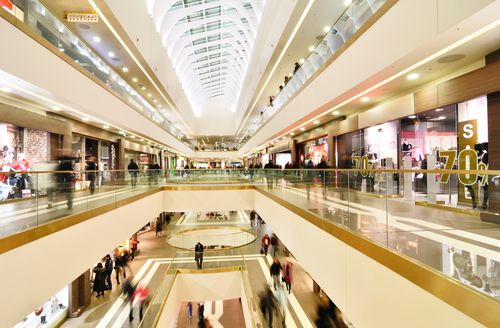
In Lotte shopping centers, cosmetics sales increased 91 percent, luxury items increased 143 percent, and home appliances and furniture increased 49 percent. Demand for cosmetics under the SKW100,000 or $87.5 threshold was stronger than ever. Consumers bought these more at shopping malls as duty-free stores remained closed and during the dry spring weather, many shoppers increased their use of skin care products. At Shinsegae Shopping Center, sales of luxury items climbed 109.9 percent and home appliances 75.7 percent. Sales of women’s clothing more than doubled. All figures are for the same period last year, the first weekend of March.
Convenience stores have also seen their wine sales increase recently. Many consumers are treating themselves to some luxury at home, as eating and drinking in restaurants is limited or impossible due to the pandemic.
Products made or imported in South Korea require Korea certification before sale. These can be consumer goods such as electronics, but food products also fall under these legal regulations. KC certification, or Korea Certification, is primarily about identifying and containing a potential risk to consumer health and safety. We will be pleased to advise you without obligation regarding a Korea Certification and would be delighted to carry it out for you.
If you need assistance or have any questions regarding Korean certifications like KC, KC EMC, KCs or KCs for explosion safety products, feel free to contact us any time.
Tel.: +49-69-2713769259
Email: info@korea-certification.com
Urgent questions?
Please do not hesitate to contact us via chat. You will find the chat window at the bottom right of each page (if this is not visible, please check your browser settings).
For more information you can download our free brochure “Korea Certification Made Easy – The Booklet“.
Mercedes-Benz and BMW surpass minor Korean automakers
For the first time, Mercedes-Benz and BMW outperformed smaller Korean automakers in sales figures. Therefore, the dominance of Hyundai Motor Group and the two German manufacturers in the South Korean car market continues to increase. According to the Korean Vehicle Import and Distribution Association, the local companies of Mercedes-Benz and BMW each sold 5,707 and 5,660 vehicles, respectively, last month. That represents year-over-year growth of 18.5 percent and 48.5 percent, respectively.
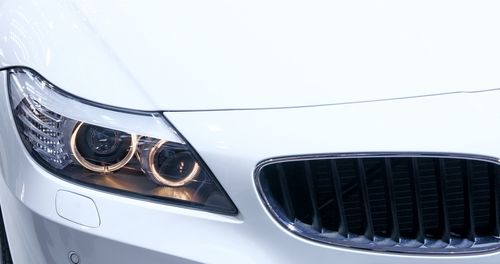
As recently as February 2020, GM Korea was able to sell 5,098 vehicles, while Renault Samsung and Ssang Yong totaled 3,900 and 2,673, respectively. GM Korea was able to surpass both Mercedes-Benz and BMW in sales at the time, but within a year, circumstances changed drastically. The declining sales of Korean automakers began as early as 2018, when foreign brands launched a variety of new models as well as offered attractive discounts. As a result, more and more buyers opted for an imported vehicle. South Korea is currently the largest sales market for the E-Class and 5 Series. Due to the good sales figures, foreign automakers are planning to increase their investment in South Korea to take advantage of the good market situation.
Many products require a certification such as the KC certification in order to be approved for the Korean market. MPR International GmbH will be pleased to advise you on Korea certification in the automotive sector. We have already successfully assisted many large automotive suppliers and vehicle manufacturers with locations in Korea with their certification projects and have been supporting these companies for several years.
If you need assistance or have any questions regarding Korean certifications like KC, KC EMC, KCs or KCs for explosion safety products, feel free to contact us any time.
Tel.: +49-69-2713769259
Email: info@korea-certification.com
Urgent questions?
Please do not hesitate to contact us via chat. You will find the chat window at the bottom right of each page (if this is not visible, please check your browser settings).
For more information you can download our free brochure “Korea Certification Made Easy – The Booklet“.
Korean steel producers confident: Demand and prices on the rise
According to industry sources, Korea’s largest steelmaker Posco has now postponed repair work at its 3rd cold-rolled steel production facility in Gwangyang, South Jeolla Province until April to meet rising demand. The work was originally scheduled for mid-March. Cold-rolled steel is processed with presses at room temperature and has a smooth surface. It is mainly used for vehicles, household appliances and steel pipes. Another company, Hyundai Steel, had also postponed maintenance and repair work earlier this year to ramp up production.
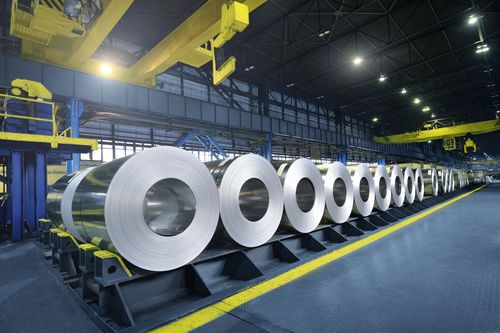
Posco raised prices for hot-rolled steel sheets for the third time, from $72 per ton in January to $89 in February and again in March to $134. Hyundai Steel also plans to raise its prices by $45 per ton. According to the Ministry of Trade, Industry and Energy, the price of iron ore at China’s Qingdao port rose US$10 from earlier this year to US$176 per ton. An anonymous industry official said market conditions for Korean steelmakers have improved due to reduced imports from China. The Chinese economy is recovering faster than predicted from the effects of the Covid 19 pandemic and therefore needs more steel domestically. Steel demand is also stable in other countries as companies steadily recover from the previous economic slump.
Another industry representative said that demand for steel sheets will continue to rise and prices will climb accordingly. He cited higher consumption from the automotive industry and vessel construction as the reason. The trend points to more environmental friendliness: In the automotive industry, more and more new vehicles are being built with electric drivetrains, and gas engines are being used in shipbuilding. An increase in sales of electrical appliances in the domestic and entertainment sectors is also resulting in higher demand for cold- and hot-rolled steel.
Demand for steel and prices could continue to rise. Recently, the Korean government announced plans to build an additional 836,000 housing units by 2025. The price of steel scrap for further processing into flat steel and castings also rose sharply in February. Steel products in South Korea require certification with the KC mark or KC certificate, which is roughly equivalent to the European CE mark and currently applies to 730 different products. MPR International GmbH – Korea Certification is available to answer your questions regarding Korea certification at any time without obligation.
If you need assistance or have any questions regarding Korean certifications like KC, KC EMC, KCs or KCs for explosion safety products, feel free to contact us any time.
Tel.: +49-69-2713769259
Email: info@korea-certification.com
Urgent questions?
Please do not hesitate to contact us via chat. You will find the chat window at the bottom right of each page (if this is not visible, please check your browser settings).
For more information you can download our free brochure “Korea Certification Made Easy – The Booklet“.
New KC EMC Standards to become mandatory in May
The Korean Radio Research Agency (RRA) circulated new standards for KC EMC in their Announcement No. 2021-10 on February 8.
The changes take effect three months after publication and thus the new standards will be mandatory from May 9, 2021.
For KC EMC approvals it means that test reports on the technical requirements for electromagnetic compatibility will have to comply with and show the new standards in order to be accepted.
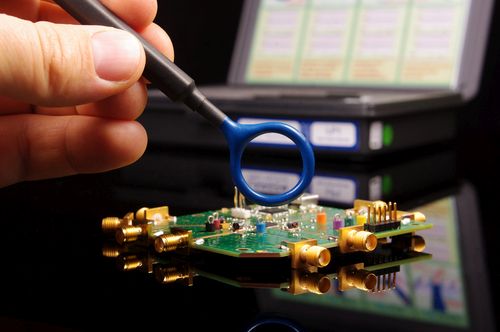
The following table provides a comparison between the old and new standards:
| Old standards | New standards |
| KN 16-1-1 | KS C 9816-1-1:2020 |
| KN 16-1-2 | KS C 9816-1-2:2020 |
| KN 16-1-3 | KS C 9816-1-3:2017 |
| KN 16-1-4 | KS C 9816-1-4:2020 |
| KN 16-1-5 | KS C 9816-1-5:2020 |
| KN 16-2-1 | KS C 9816-2-1:2020 |
| KN 16-2-2 | KS C 9816-2-2:2020 |
| KN 16-2-3 | KS C 9816-2-3:2020 |
| KN 16-2-4 | KS C 9816-2-4:2017 |
| KN 16-2-5 | KS C 9816-2-5:2020 |
| KN 61000-3-2 / KN 61000-3-12 | KS C 9610-3-2:2020 / KS C 9610-3-12:2020 |
| KN 61000-3-3 / KN 61000-3-11 | KS C 9610-3-3:2020 / KS C 9610-3-11:2017 |
| KN 61000-4-2 | KS C 9610-4-2:2017 |
| KN 61000-4-3 | KS C 9610-4-3:2017 |
| KN 61000-4-4 | KS C 9610-4-4:2020 |
| KN 61000-4-5 | KS C 9610-4-5:2020 |
| KN 61000-4-6 | KS C 9610-4-6:2020 |
| KN 61000-4-8 | KS C 9610-4-8:2017 |
| KN 61000-4-11 | KS C 9610-4-11:2020 |
| KN 61000-4-9 | KS C 9610-4-9:2019 |
| KN 61000-2-2 | KS C 9610-2-2:2017 |
| KN 61000-2-4 | KS C 9610-2-4:2017 |
| KN 11 | KS C 9811:2019 |
| KN 60601-1-2 | KS C IEC 60601-1-2:2007 |
| KN 60974-10 | KS C 9974-10:2020 |
| KN 60255-26 | KS C IEC 60255-26:2020 |
| KN 41 | KS C 9990:2017 |
| KN 301 489-51 | KS C 9995:2021 |
| KN 14-1 | KS C 9814-1:2020 |
| KN 14-2 | KS C 9814-2:2020 |
| KN 15 | KS C 9815:2019 |
| KN 61547 | KS C 9547:2020 |
| KN 60 | KS X 3141:2015 |
| KN 301 489-1 | KS X 3124:2020 |
| KN 301 489-17 | KS X 3126:2020 |
| KN 301 489-52 | KS X 3129:2020 |
| KN 301 489-6 | KS X 3128:2014 |
| KN 301 489-13 | KS X 3131:2014 |
| KN 301 489-5 | KS X 3127:2014 |
| KN 301 489-3 | KS X 3125:2020 |
| KN 301 489-9 | KS X 3130:2014 |
| KN 301 489-50 | KS X 3135:2020 |
| KN 301 489-18 | KS X 3132:2014 |
| KN 301 489-15 | KS X 3136:2014 |
| KN 301 489-2 | KS X 3137:2014 |
| KN 301 489-27 | KS X 3134:2014 |
| KN 301 489-32 | KS X 3138:2015 |
| KN 301 489-20 | KS X 3139:2014 |
| KN 62040-2 | KS C 9040-2:2017 |
| KN 60947 | KS C IEC 60947-1:2017 / KS C IEC 60947-2:2019 / KS C IEC 60947-4-1:2016 |
| KN 32 | KS C 9832:2019 |
| KN 35 | KS C 9835:2019 |
| KN 61800–3 | KS C 9800-3:2017 |
| KN 12015 | KS B 6955:2019 |
| KN 12016 | KS B 6945:2019 |
| KN 17 | KS X 3143:2020 |
| KN 61000-6-3 | KS C 9610-6-3:2017 |
| KN 61000-6-1 | KS C 9610-6-1:2019 |
| KN 61000-6-4 | KS C 9610-6-4:2017 |
| KN 61000-6-2 | KS C 9610-6-2:2019 |
| KN 100 | KS C 9991:2019 |
| KN 101 | KS C 9992:2019 |
| KN 160 | KS C 9993:2019 |
| KN 15194 | KS C 9994:2021 |
If you have products for which a KC EMC registration for electromagnetic compatibility is required we would be happy to support you with the registration under these new standards.
For products with radio technologies, KC EMC certification is also required to gain access to the South Korean market. This applies to products with radio technologies such as Wi-Fi, Bluetooth, RFID or other wireless communication technologies. MPR International GmbH has solid experience in Korea certification and competent local partners.
If you need assistance or have any questions regarding Korean certifications such as KC, KC EMC, KCs or KCs for explosion safety products, feel free to contact us any time.
Tel.: +49-69-2713769259
Email: info@korea-certification.com
Urgent questions?
Please do not hesitate to contact us via chat. You will find the chat window at the bottom right of each page (if this is not visible, please check your browser settings).
For more information you can download our free brochure “Korea Certification Made Easy – The Booklet“.
Hyundai and Kia boost expansion of charging infrastructure for electric vehicles
South Korean carmaker Hyundai Motor Group is accelerating the expansion of its charging infrastructure in preparation for numerous new electric-drive models scheduled for launch this year. Leading the way is the Ioniq 5, which is based on the proprietary EV platform E-GMP and is already eagerly awaited in South Korea as well as Europe. As another electric vehicle manufacturer, Kia has signed a contract with GS Caltex to install charging stations at their gas stations. Drivers of a Kia electric car are to receive further discounts as well as coupons when charging at GS Caltex.
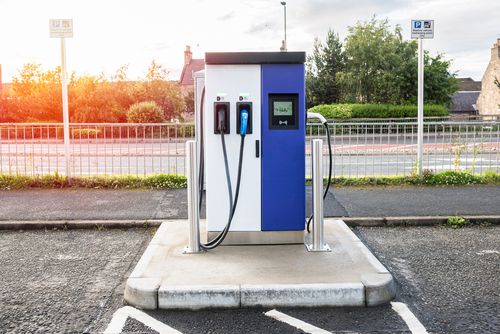
A total of 8 charging stations will be installed under the cooperation: a 350 kW super fast charging station and 7 other 200 kW fast charging stations at four locations in Seoul and nearby cities. GS Caltex is responsible for the operation of the charging stations and plans to commission them before the end of the first half of 2021. The 350 kW superfast charging station is capable of charging the 800-volt technology-based Kia EV6 to 80 percent in just 18 minutes. The new Kia EV6 will be unveiled to the public later this month.
Meanwhile, the Hyundai Group is working to add charging stations to existing gas stations. The goal is to build a network of 120 superfast charging stations at 20 locations this year. The sites are located in major cities and at rest stops along the highway. In terms of electric mobility, Hyundai also has more good news to report. The Ioniq 5, Hyundai’s first model based on the E-GMP platform, has been enthusiastically received by customers and the press. In South Korea, 26,000 vehicles have already been reserved in advance by potential customers. This is almost equivalent to the planned annual sales figures. On the first day of reservations in Europe, 3,000 vehicles were pre-ordered there. Pre-bookings for the Kia EV6 are expected to reach similarly high numbers.
Are you interested in the Korean automotive market? Before your products can be launched on the market there, they must undergo certification. MPR International GmbH will be pleased to advise you regarding a Korea certification in the automotive sector. We have already successfully assisted many large automotive suppliers and vehicle manufacturers with locations in Korea with their certification projects and have been supporting these companies for several years. Our experts are at your disposal at any time by phone or e-mail to answer your questions regarding a pending Korea certification.
If you need assistance or have any questions regarding Korean certifications like KC, KC EMC, KCs or KCs for explosion safety products, feel free to contact us any time.
Tel.: +49-69-2713769259
Email: info@korea-certification.com
Urgent questions?
Please do not hesitate to contact us via chat. You will find the chat window at the bottom right of each page (if this is not visible, please check your browser settings).
For more information you can download our free brochure “Korea Certification Made Easy – The Booklet“.
Korean automotive industry on a solid recovery track
The Ministry of Trade, Industry and Energy released the corresponding figures on February 15. Automobile production increased 24.9 percent, domestic sales increased 18.4 percent and exports increased 24.9 percent. For the first time in five months, all these figures increased by more than 10 percent. In numbers, exports increased from 148,546 to 192,322 units in one year. SUVs in particular increased by 37.7 percent and now account for 71.7 percent of all exported vehicles. Due to the resurgence in demand from the U.S., all categories except compact cars posted increases.
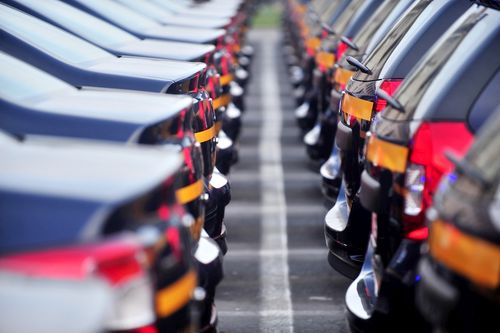
Export volume reached $4 billion in January, up 40.2 percent from a year earlier. That’s the highest figure since September 2017, led by exports of luxury SUVs and environmentally friendly vehicles with alternative engines, whose exports more than doubled. Last month, exported hybrid and electric vehicles from Korea reached a record $900 million. That represents a quarter of the country’s total auto exports.
In the domestic market, a total of 134,692 vehicles were sold in January 2021, including about 22,000 imported cars. Monthly production capacity increased to 314,190 units from 251,578 in the same month last year. This increase represents 24.9 percent and is the best figure since October 2018. Are you interested in the Korean automotive market? Before your products can be launched on the market there, they must undergo a KC certification. MPR International GmbH will be pleased to advise you regarding Korea certification in the automotive sector. We have already successfully assisted many large automotive suppliers and vehicle manufacturers with locations in Korea with their certification projects and have been supporting these companies for several years. Our experts are available at any time by phone or e-mail to answer your questions regarding a pending Korea certification.
If you need assistance or have any questions regarding Korean certifications like KC, KC EMC, KCs or KCs for explosion safety products, feel free to contact us any time.
Tel.: +49-69-2713769259
Email: info@korea-certification.com
Urgent questions?
Please do not hesitate to contact us via chat. You will find the chat window at the bottom right of each page (if this is not visible, please check your browser settings).
For more information you can download our free brochure “Korea Certification Made Easy – The Booklet“.



